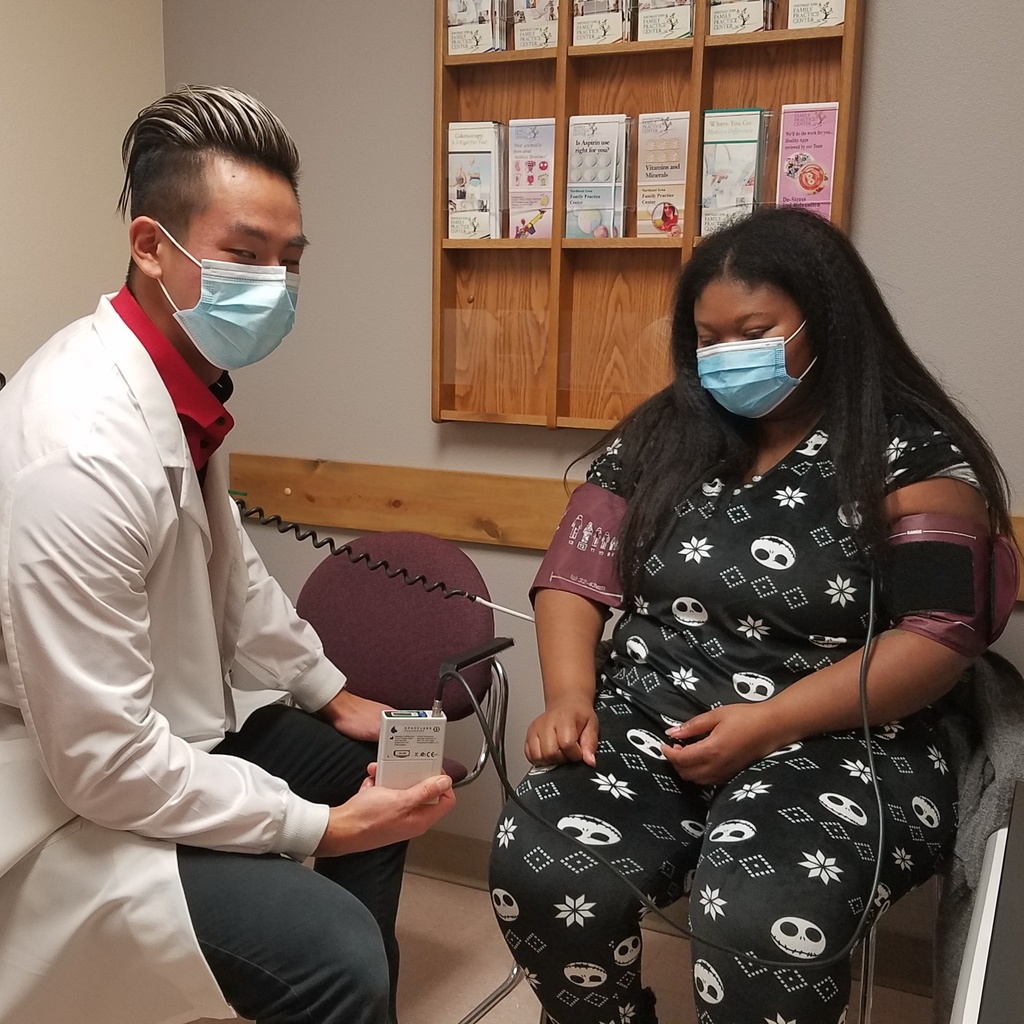Fall Elective Offerings
| Course Number | Course | Description |
|---|---|---|
| 8501 | Introduction to Nuclear Pharmacy | This course will introduce students to Radiopharmacy as a specialty practice. The course will include basic foundations of the practice as encountered daily by the nuclear pharmacist. Topics include; basic radiation physics, safety and biological effects, NRC regulations for radioactive material licensing and use, radiopharmaceutical chemistry and product preparation, radiopharmaceutical use for diagnostic imaging and therapy with examination of nuclear medicine case studies, nuclear pharmacist communication and contributions to the medical team. (2 Semester Hours -- for P2s and P3s.) |
| 8510 | Pediatrics | Overview of pediatric developmental differences, disease state medication issues, and clinical decision skills specific to pediatric population. (1 Semester Hour -- for P3s.) |
| 8511 | Introduction to Specialty Pharmacy | Introduction to the rapidly growing field of specialty pharmacy; weekly interactive classes; students spend time in a specialty pharmacy environment and specialty clinic with a clinical pharmacy specialist to gain knowledge and understanding of clinical, business, distributive, and managed care aspects of specialty pharmacy. (2 Semester Hours -- for P2s and P3s.) |
| 8517 | Fundamentals of Clinical Pharmacy for the Critically Ill (certificate students only) | Exploration of three core concepts as they relate to acute care clinical pharmacy practice: clinical skills, evidence-based practice, and communication and professionalism. (2 Semester Hours -- for P3s.) |
| 8518 | Innovating Healthcare: The Pharmacist Entrepreneur | Introduction of key fundamentals and processes for starting a business or similar enterprise. From ideation to funding, operations, growth, and exit planning; students gain exposure to various real-world opportunities, challenges, and issues faced by entrepreneurs. (2 Semester Hours -- for P2s and P3s.) |
| 8717 | Ambulatory Care Pharmacy | Additional experience in the practice of clinical pharmacy; focus on key therapeutic areas where ambulatory care clinical pharmacists currently have a significant impact improving patient care, including anticoagulation management, hyperlipidemia management, and diabetes management; opportunity to develop expertise in clinical decision making, improve problem solving abilities, and continued development in writing and oral presentation skills. (2 Semester Hours -- for P3s.) |
| 8721 | Leadership & Political Advocacy | Contemporary issues in pharmacy; role of leadership and advocacy in shaping profession; becoming effective advocates within political and policy making process; development of advocacy and leadership skills essential to improve self, profession, and community. (1 Semester Hour -- for P2s.) |
| 8724 | Health System Pharmacy Practice Management | Organizational structure of pharmacy departments in hospitals and health care systems; models for delivery of pharmaceutical care; pharmacy's role in drug policy decision-making; provision of drug information; clinical and distributive pharmacy services; control of pharmacy and pharmacy costs; use of information technology and automation for service delivery; supervisory management; quality improvement. (2 Semester Hours -- for P2s and P3s.) |
| 8799 | Active Residency Preparation | Students develop the understanding of what a residency is, what programs exist, the usual qualifications for placement, and the necessary pathway and components of residency attainment; hands-on experience with preparation process; for pharmacy students interested in pursuing residency training following graduation. (2 Semester Hours -- for P3s.) |
Spring Elective Offerings
| Course Number | Course | Description |
|---|---|---|
| 8505 | Advanced Topics in ID/HIV/Antimicrobial Therapy | Topics in antimicrobial treatment of infectious diseases beyond those in the required pharmacy curriculum, including topics covered in the infectious disease therapeutics course; lectures, case discussion, class participation, and summary presentations of an uncommon organism or antimicrobial agent. (2 Semester Hours -- for P3s.) |
| 8514 | Clinical Toxicology | Introduces students to topics in toxicology beyond those in the required pharmacy curriculum. Focus on developing students' basic understanding of drug mechanism of action, pharmacokinetic and pharmacodynamic changes associated with various toxicants, and the management of both pharmacologic and environmental toxicologic emergencies. (2 Semester Hours -- for P2s.) |
| 8515 | Advanced Cardiotherapeutics | Provides pharmacy students with a comprehensive understanding of cardiovascular diseases, their management, and the role of pharmacotherapy in optimizing patient outcomes. Students develop a strong foundation in cardiovascular pharmacology to gain the necessary skills to apply their knowledge in a clinical setting. Connect available primary literature evidence to tangible clinical decisions, weighing pros, cons, and potential clinical scenarios in which the clinical choice of therapy may change. (1 Semester Hour -- for P3s.) |
| 8519 | Calculations for NAPLEX Readiness | This course will introduce (or re-introduce) pharmacy students to the calculations commonly used in pharmacy practice that are also assessed on the North American Pharmacy Licensure Examination (NAPLEX). The knowledge and skills learned in this course will prepare students to apply calculation problem solving skills to clinical practice. Topics discussed will focus on the pharmaceutical and clinical calculations that are critical to the safe and effective delivery of medications to the patient. (2 Semester Hours -- for P2s and P3s.) |
| 8708 | Substances of Misuse | Emphasis on the most important themes and concepts in the field of substance use and treatment; drugs of misuse including stimulants, opioids, sedative-hypnotics, alcohol, hallucinogens, marijuana, and performance enhancing compounds; drug use prevention and treatment; depiction of substance use in modern culture. (1 Semester Hour -- for P1s and P2s.) |
| 8709 | Pharmacist’s Role in Health Coaching/Nutrition | Explores the role of pharmacists in health coaching and nutrition, particularly through interactions that can benefit patients with chronic diseases. Students will learn health coaching strategies, and interactive sessions are used to allow students to apply the practice of health coaching to patient cases via an active learning format. Clinical Nutritionists as guest instructors educate students on topics including the basis of nutrition, different “Fad Diets,” and intuitive eating habits. Students will gain an appreciation of the importance of nutrition and health coaching for chronic disease management in patients. (2 Semester Hours -- for P1s and P2s.) |
| 8712 | Nonprescription Pharmacotherapy and Self-Care | Introduction to nonprescription medications; development of patient assessment and consultation skills; understanding of pharmacist's role in patient self-care. (2 Semester Hours -- for P2s.) |
| 8718 | Special Topics in Acute Care | This inpatient, elective therapeutics course complements the overall therapeutics course series and emphasizes the use of drug therapy in a wide variety of hospital situations. It addresses the pharmacotherapy used in treating diseases, disorders or syndromes, including a review of the disorder, therapeutic goals, treatment plans, patients counseling as appropriate, and monitoring patient outcomes. Students will learn how to assist other caregivers in the development of rational plan of drug therapy for a patient and to evaluate existing plans of therapy and suggest therapeutic alternatives when necessary. The course covers the pharmacotherapy associated with a wide variety of inpatient therapeutics topics. Although some topics from the regular therapeutics series may be reviewed, they will be covered in additional depth or presented in a more case-based format. (2 Semester Hours -- for P3s.) |
| 8790 | Sustainable Clinical Pharmacy Services | Practical knowledge and understanding of how to implement and sustain clinical pharmacy services in a variety of practice settings; how to identify outcomes to evaluate the success of ongoing services; students explore the perspective of leadership and management as it pertains to clinical pharmacy services. (1 Semester Hour -- for P3s.) |
8794 | Emergency Medicine | Overview and discussion of pathology and pharmacotherapy in emergency medicine. (2 Semester Hours -- for P3s.) |



